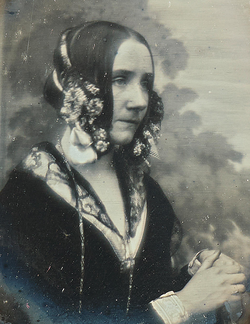
Today we mark Ada Lovelace Day, an annual celebration to raise awareness of the contributions of women in science, technology, engineering, and mathematics (STEM). It falls on the second Tuesday of October.
What is Ada Lovelace Day — and why does it matter?
Named after Ada Lovelace (1815-1852), who is often regarded as the world’s first computer programmer, the day was founded in 2009 by Suw Charman-Anderson to highlight women whose work in STEM has often gone unnoticed.
Ada collaborated with Charles Babbage on his proposed “Analytical Engine”, arguably the first design for a computer. Her vision extended beyond number-crunching: she foresaw machines manipulating symbols such as music or text. Ada, the abandoned daughter of the romantic poet, Lord Byron, made Babbage a bold proposal - if you'd like to learn more about her history, work and her relationship with Babbage, we wrote about it in our Ada Lovelace Day blog in 2024
But Ada Lovelace Day is not just about Ada: it is a prompt to uncover and celebrate the many women whose contributions in STEM have been overlooked or under-recognised.
Some key women in STEM to remember today
- Mary Somerville — A respected 19th-century scientist and polymath, and Ada’s mentor.
- Rosalind Franklin — Her X-ray crystallography work was critical to understanding DNA’s double helix structure.
- Elizabeth Garrett Anderson — The first Englishwoman to qualify as a physician, breaking barriers in a male-dominated field.
- Mae Jemison — The first Black woman NASA astronaut to travel in space, a modern role model showing that STEM and space exploration are open to all.
- Jennifer Doudna & Emmanuelle Charpentier — Co-developers of the CRISPR genome-editing technique, transforming biology and medicine.
These are just a few examples — there are many more women across time, disciplines and geographies whose stories deserve telling and celebrating.
Why today is still needed
Despite progress, STEM fields remain disproportionately male, especially at senior levels.
Ada Lovelace Day reminds us that the stories we tell — about who builds technology, who does science — matter. If the default narrative features mostly men, then many girls and women may not see themselves as legitimate contributors to STEM. By actively highlighting women’s achievements, we help shift perspectives, create role models, and challenge the cultural inertia that can overshadow women's work.
So today, let’s celebrate Ada, and also commit to lifting up all women in STEM — past, present and future.
Get involved with Ada Lovelace Day
Ada Lovelace Day is now in its sixteenth year and www.findingada.com is wonderful way to get involved. There are online and in-person grass roots events which will appeal to all ages, from girls to university students to women with well-established careers. You can subscribe to the newsletter or search for events on the website.
